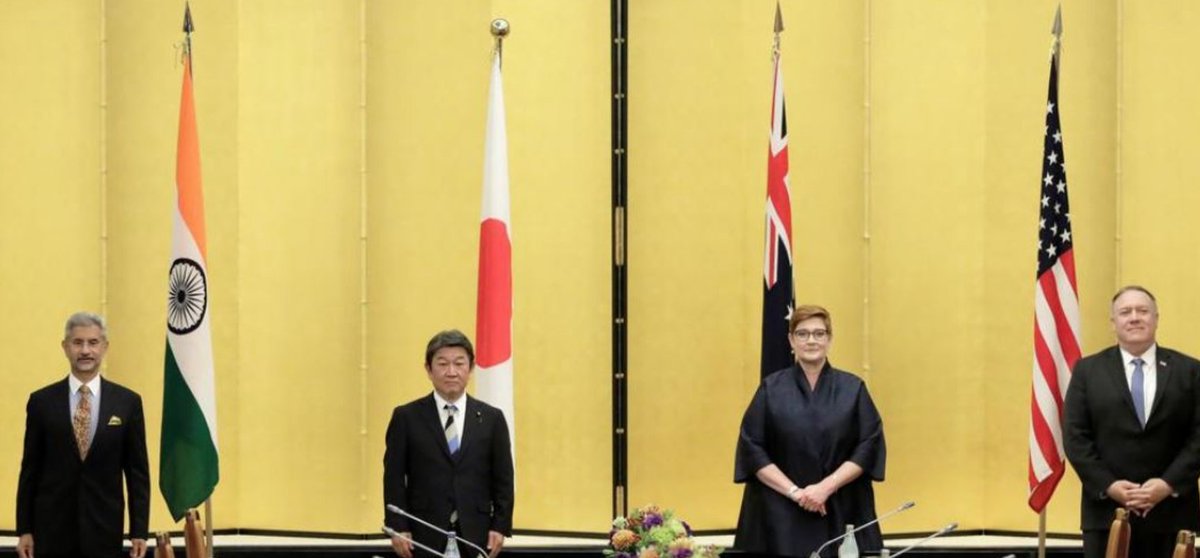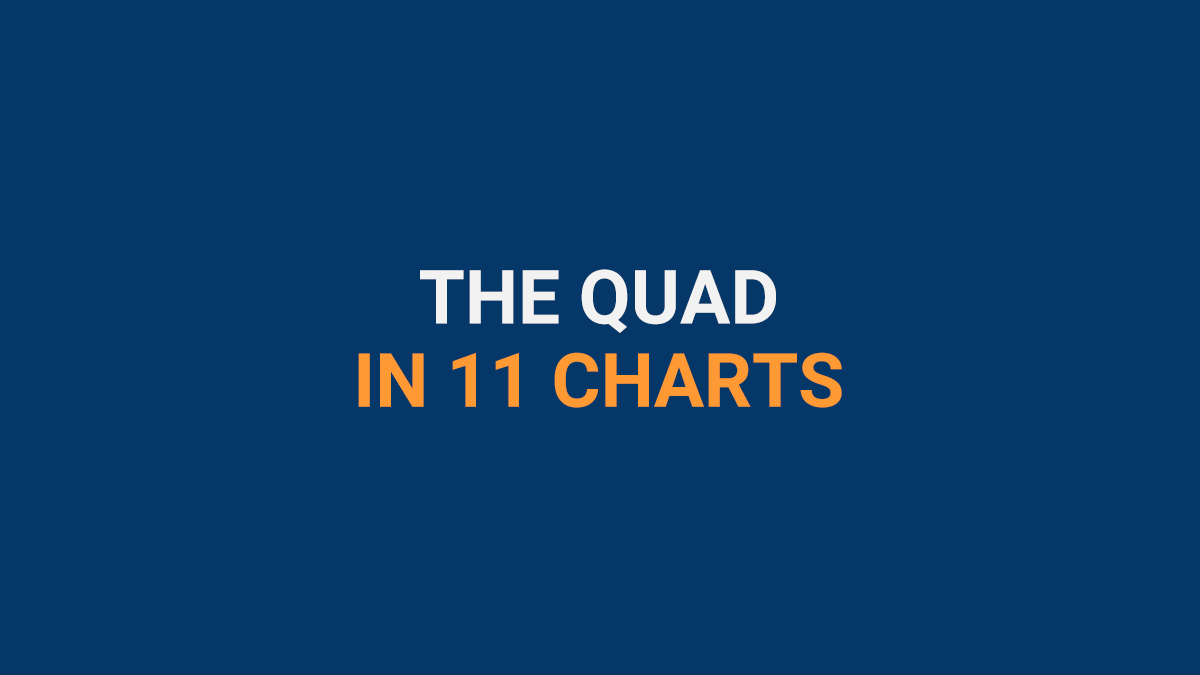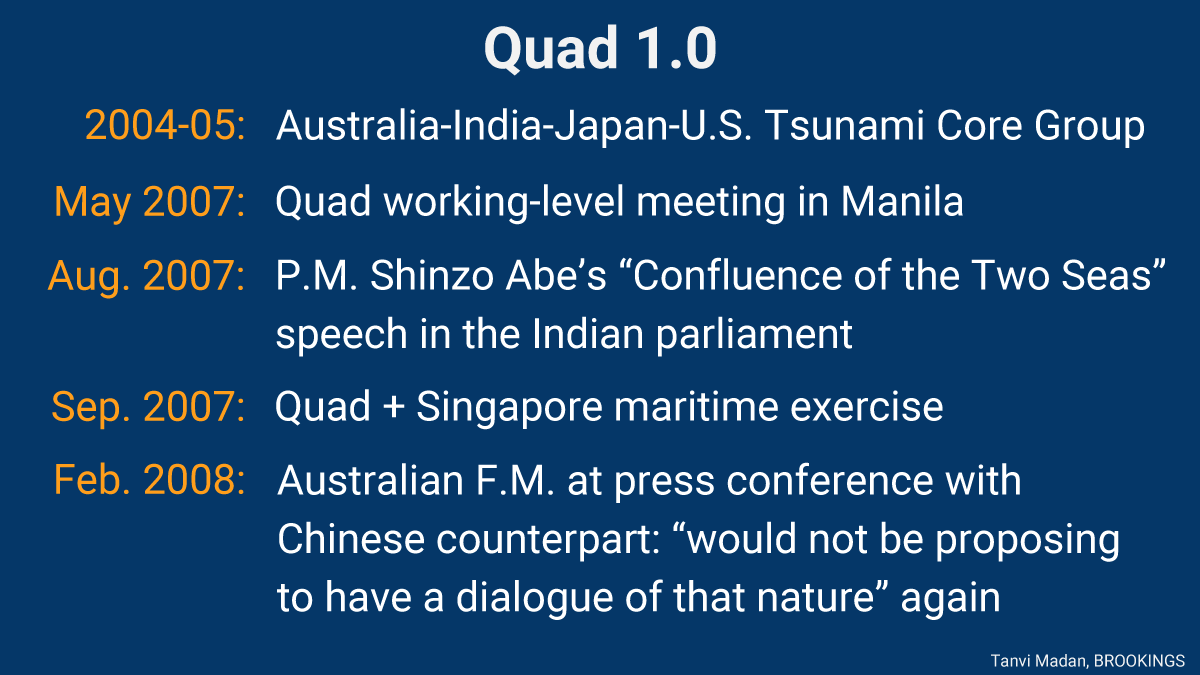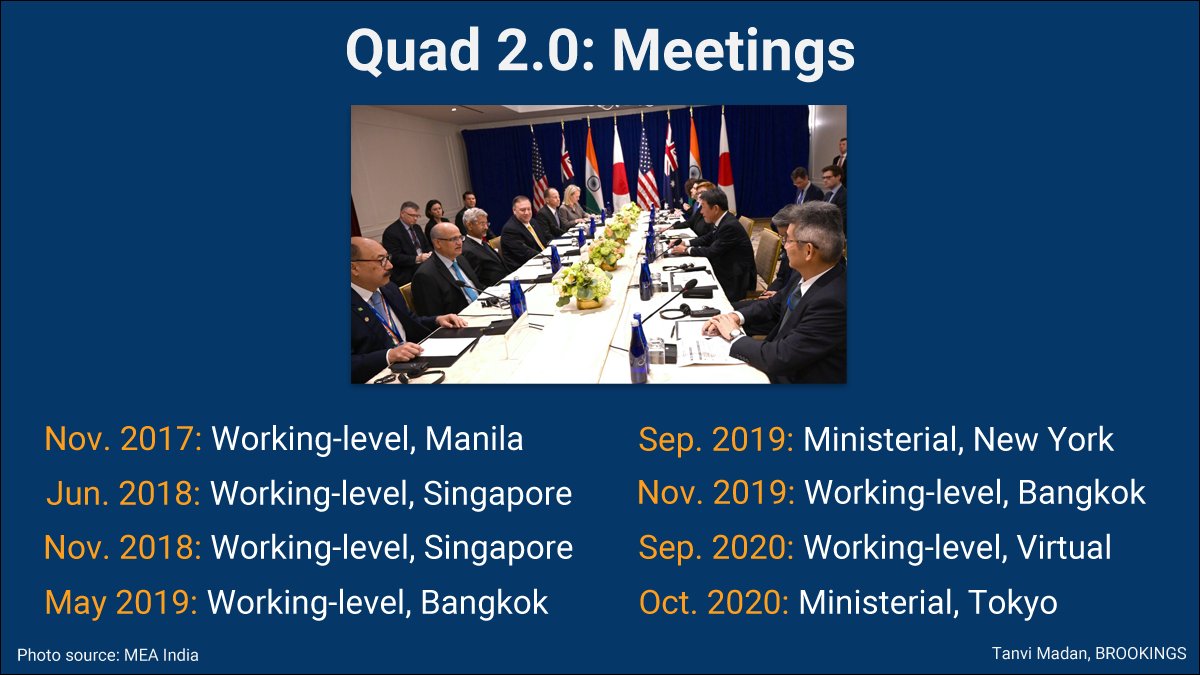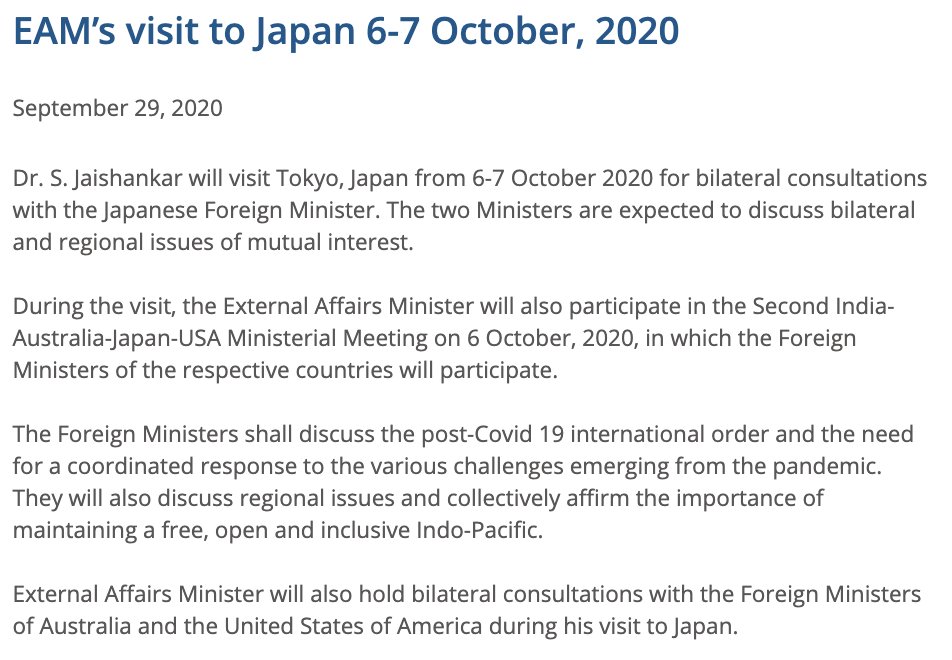
1/ Delhi says India-Japan-US exercise "Malabar 2020 will see the participation of the Australian Navy"
This is thanks to Chinese behavior & a reflection of deepening IN-AU ties.
For many, this has been the litmus test for the Quad. Now what? 🇦🇺🇮🇳🇯🇵🇺🇸
pib.gov.in/PressReleasePa…
This is thanks to Chinese behavior & a reflection of deepening IN-AU ties.
For many, this has been the litmus test for the Quad. Now what? 🇦🇺🇮🇳🇯🇵🇺🇸
pib.gov.in/PressReleasePa…

2/ From Australia's minister of defence...
https://twitter.com/lindareynoldswa/status/1318166953463222275?s=20
3/ Seeing a lot re potential hostile Chinese reaction to mQuad. Taking foreigners hostage? Using force to change territorial status quo? Economic coercion Beating up diplomats? Oh, wait.
It is China's already hostile reax that has driven 🇦🇺🇮🇳🇯🇵🇺🇸 closer.
It is China's already hostile reax that has driven 🇦🇺🇮🇳🇯🇵🇺🇸 closer.
https://twitter.com/AndrewBGreene/status/1318138528463663104?s=20
4/ There's some question about why Delhi's announcement only mentions MALABAR 2020. I don't know for sure, but quite likely because this is India's turn to host. It can't really issue a blanket invitation alone since this is/was a trilateral exercise. 
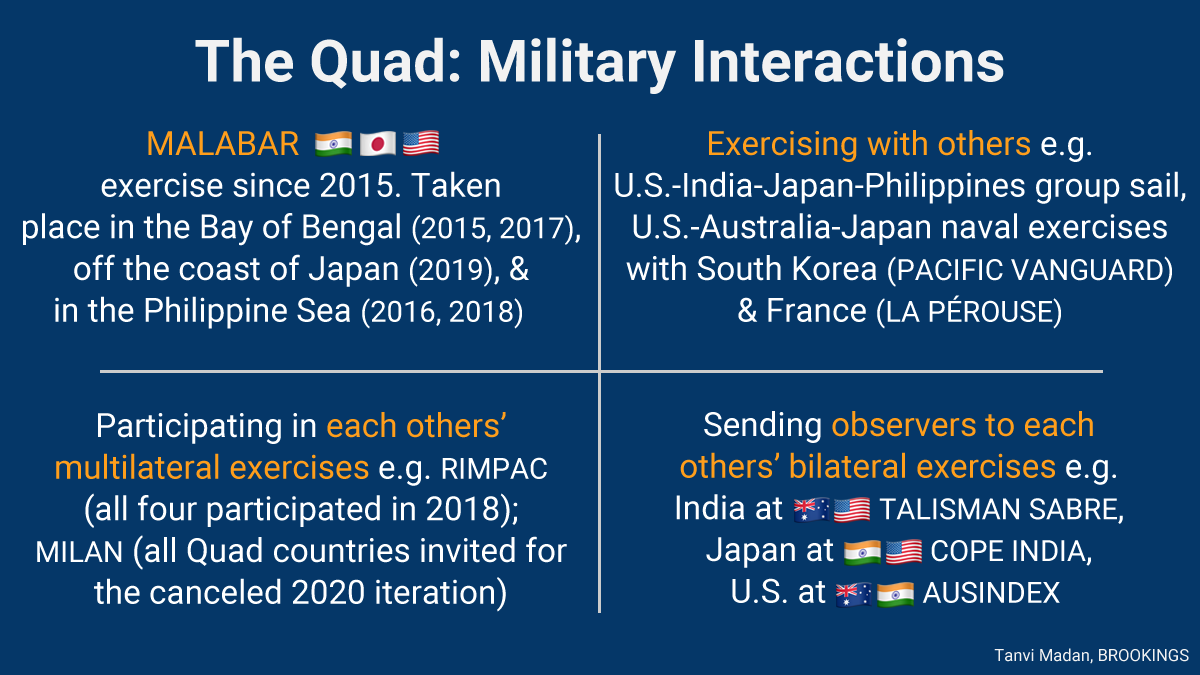
5/ For context, re-upping my Quad charts
Part I: brook.gs/3jzZB52
Part II: brook.gs/2SFiAzo
Also, for deepening Australia-India ties, read @d_jaishankar's recent report lowyinstitute.org/publications/a…
Part I: brook.gs/3jzZB52
Part II: brook.gs/2SFiAzo
Also, for deepening Australia-India ties, read @d_jaishankar's recent report lowyinstitute.org/publications/a…

6/ Some complaining re S/SE Asia being left out by Quad countries: much of ASEAN doesn't want to be in. Smaller states not being ignored tho. High-level visits in last 2 wks:
- 🇦🇺 -> 🇸🇬
- 🇮🇳 -> 🇲🇲
- 🇯🇵 -> 🇮🇩🇻🇳
- 🇺🇸 -> 🇧🇩
- 🇦🇺 -> 🇸🇬
- 🇮🇳 -> 🇲🇲
- 🇯🇵 -> 🇮🇩🇻🇳
- 🇺🇸 -> 🇧🇩
• • •
Missing some Tweet in this thread? You can try to
force a refresh




